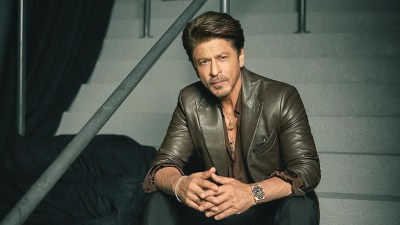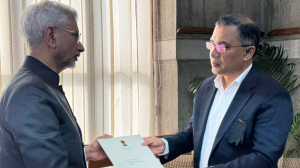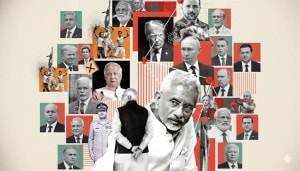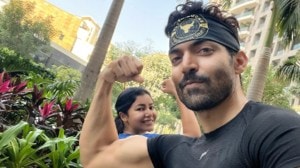Spy in the cold
He has never anticipated that the heat waves of the Thar desert will become a geopolitical challenge to the new world order. He really misse...

He has never anticipated that the heat waves of the Thar desert will become a geopolitical challenge to the new world order. He really missed the Siberian chill. This tropical remoteness and its subterranean secrets, he sighed and removed his dark goggles to wipe off the dust of oriental deception and dreamed fondly of Brezhnev. When the ground beneath his feet danced to thermonuclear tunes, he could easily have measured his own redundancy in megatons. He was the Buddha minus enlightenment, and he cursed his diminishing intelligence, his lack of foresight. Didn8217;t they send enough signals in advance, those wretched Hindu nationalists? China. National security. Nuclear well-being. Election rhetoric, we thought, just a campaign bomb. No, it was not, it was real, it was such a radioactive repudiation of world peace. He could not have prevented it. But he should have known that it was coming. The loneliness of the American spy is the sub-human interest story of the post-Wall world. A Pokharan here and the ChagaiHills across the border this hair-trigger nuclear tension in the subcontinent has so vividly lampooned the lean Langley with little meanness.
So the CIA is in a sad state, and, according to an independent review by a retired admiral, the only superpower8217;s intelligence community cannot go on like this. The admiral says the agency has failed miserably in recognising the nuclear threat posed by non-rogue states like India. In other words: too much Pyongyang and Baghdad at the cost of India. Really? The rogues are still rogues despite the spies, despite the inspectors, despite the resolutions, despite the sanctions. For, the imperial agents8217; are still trying their best to get the lethal stuff out of Saddam8217;s presidential sites and other bunkers. And Saddam continues to smile his lethal smile. What about the other rogue, the socialist one? He has long ago stopped trusting the contents of Havana cigars; and it is unlikely that he will have his vodka without a foretaste of mortality. So the spy has not yetreally tackled the rogues. Perhaps he was waiting to be outsmarted by non-rogues. For the undercover cold warrior, the heatstroke of Pokharan was such a rude awakening.
The world has changed. The spy hasn8217;t. Once upon a time, it was just good versus evil, a black-and-white bipolarity in which the enemy in fur cap had bushy eyebrows, and he spoke with a Slavic accent. The comic-book simplicity of the cold war always ensured the triumph of the good old American spy. The Kremlin savages never got into pressing the nuclear button. Rather, the evil empire fell to the gravity of History which is, all said, not another name for Ronald Reagan. In the post-8217;89 unipolar world without a Berlin Wall, Gorky Park has taken refuge in second-hand bookshops. Or, the second-rate mind of the American spy. His dilemma is worse than Tom Clancy8217;s. The enemy has gone. And enemies have sprouted all over the world, most stereotypically, the Islamic world. But the Yankee spy, historically conditioned by the KGB-centricSovietology, is still struggling to find his way in the maze of the new bad world where rogues are not necessarily Slavic. They are not even rogues. Worse, they are Hindu nationalists. As ancient as the CIA, maybe.
- 01
- 02
- 03
- 04
- 05































